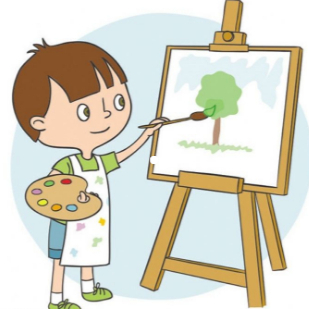
春节的由来英文怎么写?
1、The Spring Festival is the first year of the lunar calendar. Another name of the Spring Festival is the Spring Festival. It is the biggest, busiest and most important ancient traditional festival in China. It is also a unique festival for Chinese people.
(春节是农历的第一年。春节的另一个名称是春节。它是中国最大、最繁忙、最重要的古代传统节日。它也是中国人独特的节日。)
It is the most concentrated expression of Chinese civilization. Since the Western Han Dynasty, the custom of Spring Festival has continued to this day. Spring Festival generally refers to New Years Eve and the first day of the first lunar month.
(它是中华文明最集中的表现形式。自西汉以来,春节的'习俗一直延续到今天。春节一般指除夕和正月初一。)
Origin of the Spring Festival(春节的来历):
1、The Spring Festival is the first year of the lunar calendar. Another name of the Spring Festival is the Spring Festival. It is the biggest, busiest and most important ancient traditional festival in China. It is also a unique festival for Chinese people.
(春节是农历的第一年。春节的另一个名称是春节。它是中国最大、最繁忙、最重要的古代传统节日。它也是中国人独特的节日。)
2、It is the most concentrated expression of Chinese civilization. Since the Western Han Dynasty, the custom of Spring Festival has continued to this day. Spring Festival generally refers to New Year's Eve and the first day of the first lunar month.
(它是中华文明最集中的表现形式。自西汉以来,春节的习俗一直延续到今天。春节一般指除夕和正月初一。)
3、But in the folk sense, the traditional Spring Festival refers to the sacrificial sacrifice on the eighth day of the eighth month or the sacrificial stove on the twenty-third or twenty-fourth day of the twentieth month until the fifteenth day of the first month, with the New Year's Eve and the first day of the first month as the climax.
(但在民间意义上,传统的春节是指以除夕和正月初一为高潮,在八月八日的祭祀活动或在十二月二十三日、二十四日至正月十五日的祭祀炉灶活动。)
4、How to celebrate this festival has formed some relatively fixed customs and habits in the historical development of thousands of years, many of which are still handed down today. During the traditional festival of Spring Festival, the Han and most minority nationalities in China have to hold various celebrations.
(在几千年的历史发展过程中,如何庆祝这个节日已经形成了一些相对固定的风俗习惯,其中许多至今仍在流传。在传统的春节期间,汉族和中国大多数少数民族都要举行各种各样的庆祝活动。)
5、Most of these activities mainly focus on sacrificing gods and Buddhas, sacrificing ancestors, removing old cloth and new cloth, celebrating the New Year, and praying for a good year.
(这些活动大多集中在祭祀神佛、祭祖、脱去旧布新布、庆祝新年、祈祷新年等方面。)
译文:The origin of Spring Festival
重点词汇:Festival
英 ['festɪvl]
释义:
n. 节日;庆祝,纪念活动;欢乐
adj. 节日的,喜庆的;快乐的
[ 复数 festivals ]
短语:
Lantern Festival 元宵节 ; 农历正月十五元宵节 ; 上元节 ; 正月十五
扩展资料:
词语辨析:jump,leap,spring,hop,bound,skip
这些动词均有“跳、跳跃”之意。
1、jump是普通用词,指用双脚向上跳,向下跳,或在同一平面上跳到有一定距离的某一点上,或跳过。
2、leap常可与jump换用,但侧重身体猛力向上升起并朝前急冲的动作,有时含突然的意味。
3、spring更强调有力和弹跳的运动。
4、 hop指单脚短跳或双足猛力的动作。也指小鸟、青蛙等的跳。
5、bound多指向前向上或向下跳跃、奔跳。
6、skip指两脚交替轻轻地跳或跨的动作。
1、The Spring Festival is the first year of the lunar calendar. Another name of the Spring Festival is the Spring Festival. It is the biggest, busiest and most important ancient traditional festival in China. It is also a unique festival for Chinese people.
(春节是农历的第一年。春节的另一个名称是春节。它是中国最大、最繁忙、最重要的古代传统节日。它也是中国人独特的节日。)
2、It is the most concentrated expression of Chinese civilization. Since the Western Han Dynasty, the custom of Spring Festival has continued to this day. Spring Festival generally refers to New Year's Eve and the first day of the first lunar month.
(它是中华文明最集中的表现形式。自西汉以来,春节的习俗一直延续到今天。春节一般指除夕和正月初一。)
3、But in the folk sense, the traditional Spring Festival refers to the sacrificial sacrifice on the eighth day of the eighth month or the sacrificial stove on the twenty-third or twenty-fourth day of the twentieth month until the fifteenth day of the first month, with the New Year's Eve and the first day of the first month as the climax.
(但在民间意义上,传统的春节是指以除夕和正月初一为高潮,在八月八日的祭祀活动或在十二月二十三日、二十四日至正月十五日的祭祀炉灶活动。)
4、How to celebrate this festival has formed some relatively fixed customs and habits in the historical development of thousands of years, many of which are still handed down today. During the traditional festival of Spring Festival, the Han and most minority nationalities in China have to hold various celebrations.
(在几千年的历史发展过程中,如何庆祝这个节日已经形成了一些相对固定的风俗习惯,其中许多至今仍在流传。在传统的春节期间,汉族和中国大多数少数民族都要举行各种各样的庆祝活动。)
5、Most of these activities mainly focus on sacrificing gods and Buddhas, sacrificing ancestors, removing old cloth and new cloth, celebrating the New Year, and praying for a good year.
(这些活动大多集中在祭祀神佛、祭祖、脱去旧布新布、庆祝新年、祈祷新年等方面。)
|
广告 您可能关注的内容 |







